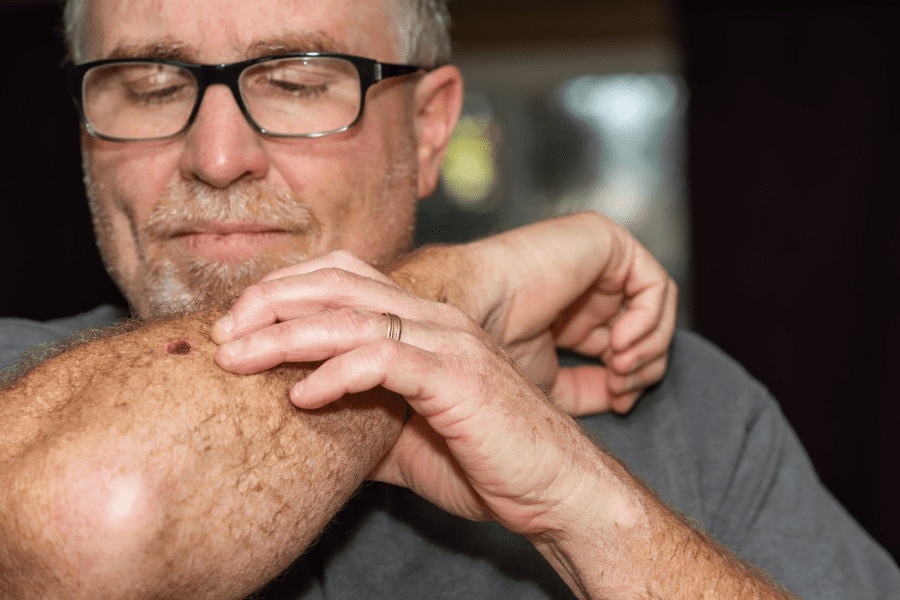Skin cancer is on the rise, and it has been for the last three decades. Around 16,000 new cases of skin cancer are diagnosed each year. Consequently, it is now the fifth most common cancer in the UK. Thankfully, most kinds of skin cancer are treatable and not life-threatening. After the hottest weekend so far this year, now is the time for a timely reminder of what the symptoms are and simple ways to help prevent this disease.
The skin is the largest organ in the body and is constantly renewing itself. We shed around 60,000 skin cells every day and replace them all as well. The skin protects us, insulates us, and allows us to control our internal temperature. Yet constant regeneration and exposure to environmental hazards make the skin vulnerable. Our skin is especially vulnerable to ultraviolet light from natural sunlight or from sunbeds.
Traditionally, we have been told that UVA radiation causes changes in ageing and that UVB radiation causes changes in burning. However, both can induce cancerous changes, and the longer the exposure to the sun over accumulated years and the higher the number of episodes of burning (especially in childhood), the greater the risk of developing skin cancer. People with certain skin types—blond hair, pale skin, and freckles—are especially at high risk of skin cancer because of their lack of natural pigmentation.
Some additional causes include a previous non-melanoma skin cancer, having a family history of skin cancer. If you have pale skin that burns easily, a large number of moles or freckles. Taking medicine that suppresses your immune system, a co-existing medical condition that suppresses your immune system.
Symptoms
Here are some signs of skin cancer:
- mole gets bigger
- changes shape
- has a blurred, rough or jagged outline
- gets darker or red
- has more than one colour in it
- gets itchy or painful
- gets crusty or bleeds
Young people can develop skin cancer, and many of them die every year, leaving behind young families. Sadly, most are preventable deaths. If you are exposed to the sun enough, you are vulnerable. Harsh British summers don’t decrease the risk. In fact, more people are having holidays abroad in hotter climates than before. The thinking is to make up for the lack of sunshine in the winter in the UK by frying themselves in the sun as soon as they reach their holiday destination.
Here are a few tips to help prevent sunburn:
- A sunscreen of at least Factor 30 (UVB) with a 5 star rating (UVA) is recommended.
- Sunscreen should be reapplied frequently to ensure adequate protection.
- The eyes and scalp also need protection with UV filtering sunglasses.
- Wear a wide brimmed hat.
- Wear long sleeves, trousers or things like sarongs on hot days.
- Stay in shade especially between 11am to 3pm.
- Avoid tanning beds and sun showers.
Keep in mind that sunbeds are not a better or safer alternative. Visit our page for some more ways to prevent the effects of the sun and heat.
Enjoy the sunshine by all means, but just a little at a time! To find additional helpful information on skin cancer, it can be found on Cancer Research, along with details on other types of this cancer.
We hope you found this article useful. For more helpful information like that in this article, please visit our blog.




